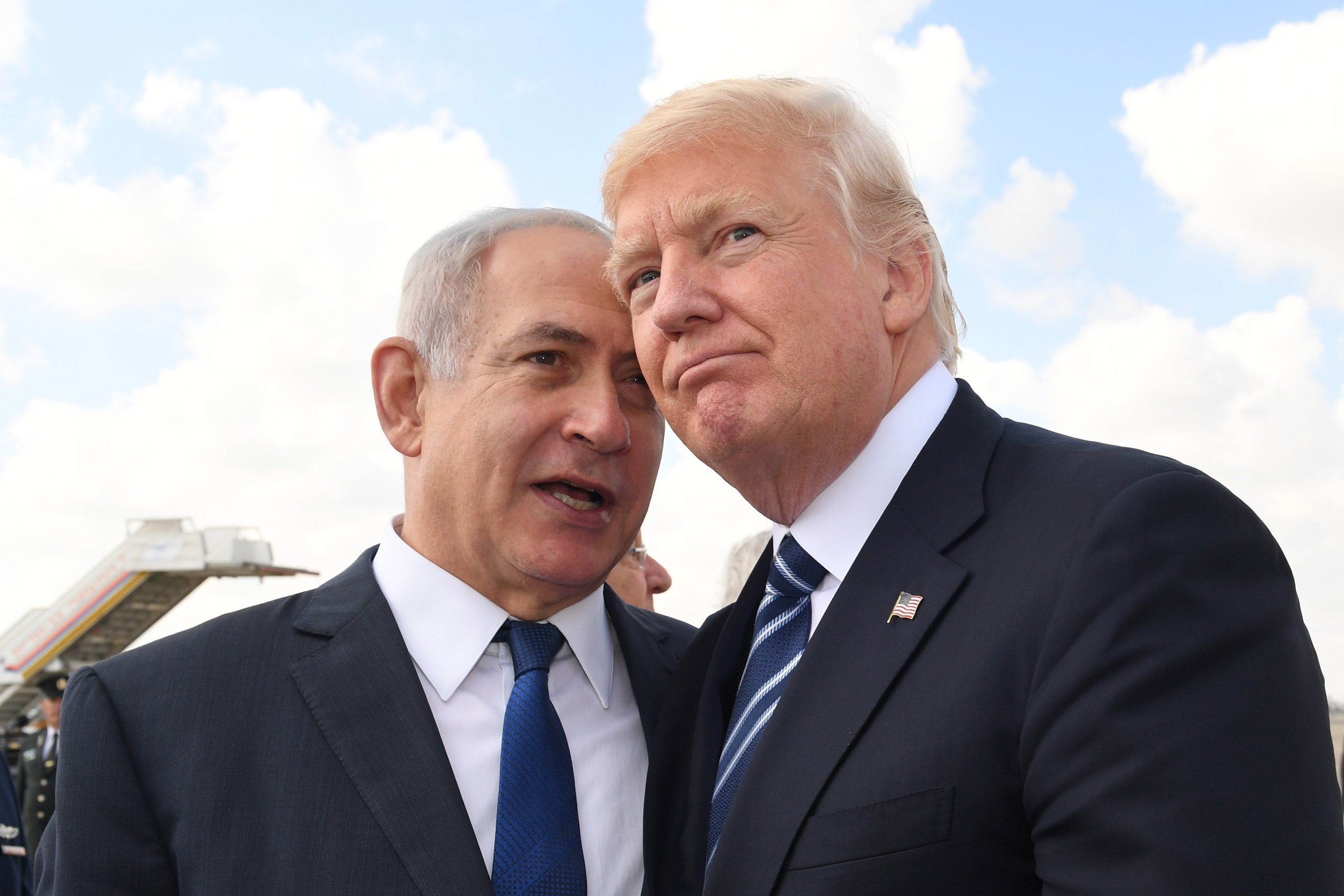So Trump reckons he can end the Gaza war within hours? Good luck with that…
Just wait until I’m re-elected, promised Trump. Many took his bold assertion as a blank cheque for Israel to do what it wants against its regional enemies – so now the White House race is won, Mark Almond looks at what happens next in the Middle East


Even as the counting for the US election was underway, Benjamin Netanyahu sacked his defence minister, Yoav Gallant.
Gallant had been Joe Biden’s preferred interlocutor since 7 October last year, as his administration struggled to marry unlimited support for Israel’s military with pleading with the IDF to let more humanitarian aid into Gaza.
Netanyahu’s replacement of Gallant with his hardline foreign minister, Israel Katz – and his replacement of Katz as foreign minister with an even harder-line new political ally, Gideon Sa’ar, once seen as Netanyahu’s most dangerous emerging rival on the right – suggests that Israel’s veteran premier expected the US election to free him from any remaining restraints from Washington.
Within hours, Hezbollah passed its verdict on Trump’s re-election by firing a volley of rockets at an Israeli settlement on the Golan Heights, which Trump had recognised as part of Israel when last in office. Hezbollah’s attack wasn’t random: their missiles hit “Trump Heights”, as the settlement was named, in his honour. Hezbollah certainly seems anxious not to win an unlikely friend in Washington.
It is worth remembering that whatever divides Israelis domestically, most are pro-Trump. Israel is one of the few US allies with a majority like that and is obviously an outlier in terms of popular opinion in the Middle East.
But, of course, public opinion counts for little when it comes to deciding foreign policy in the Middle East; where monarchs and republican despots make the decisions. Saudi Arabia’s ruling crown prince, Mohammed bin Salman, (in-)famously reportedly said he has no interest in Palestinians, being concerned only with his subjects’ wellbeing.
Even though Saudi Arabia did not join the Emiratis and Bahrain in signing up to Trump’s Abraham accords, making peace with Israel towards the end of Trump’s last term, no one doubts that Riyadh shares their concern for a US guarantee of security against any potential attack from Iran.
Trump’s rhetoric about his record of squeezing Iran with sanctions but deterring war, by making clear how tough he would be on any Iranian military action, throws down a gauntlet to Tehran. In the days before the election, Iran warned that it was readying a reprisal missile strike for Israel’s attack on its air defences and missile plants last month.
Silence, then, has replaced threatening noises from Tehran. Is the ayatollah busy drawing up a target list, or is he dithering? Worried, perhaps, that even if Trump doesn’t take office until next January, he and his Iranophobe advisers – like vice-president JD Vance and ex-secretary of state Mike Pompeo – would decide what Joe Biden would do in response to an Iranian attack on Israel.
It is also striking that even though reports the Houthis had decided to halt attacks on shipping in the Red Sea were overoptimistic, Iran’s Yemeni allies seem to want to establish “rules” for their actions against shipping to Israel’s port, Eilat, or the Suez Canal. What the Houthis seem to be offering is an opportunity for shipping companies to pay a “toll” to let their vessels pass unharmed (rather as medieval robber barons in their castles along the Rhine offered “protection” to barges passing below).
Trump had made a bold promise to end the Gaza war within hours if re-elected. Many took that as a blank cheque for Israel to do what it wanted against its regional enemies.
Certainly, Netanyahu’s very personal congratulatory letter to Donald and Melania Trump suggests he guessed that playing up the personal would pay political dividends for Israel and for himself. But it would be risky to assume that Trump would drop his new election-winning coalition which included, as he noted in his victory speech, Arab Americans and Muslim voters. Instead, Trump could quite possibly pressure Israel into a humanitarian ceasefire once back in the White House.
Where Trump’s personal affection for Netanyahu will benefit the embattled Israeli PM is in how Washington reacts to internal developments in Israel. Certainly, Trump will protect Israel from an Iranian attack – but, more importantly, the new US president will not share the Democrats’ distaste for the Israeli premier’s way of managing his country. Trump knows what it’s like to be prosecuted for corruption and he doesn’t like prosecutors and “biased” judges any more than does Netanyahu.
The latter’s drive to assert his control over Israeli politics (not least the legal system) will no longer face pressure from the White House to respect the norms of the Israeli legal system. That backing could compensate Netanyahu personally for any pressure from Trump on Israel to give him a “peace” victory to start his second term.
Trump could find out, like so many US presidents, that the ME rarely responds to either carrots or sticks as expected. But he is unpredictable enough to surprise both us and them.






Join our commenting forum
Join thought-provoking conversations, follow other Independent readers and see their replies
Comments